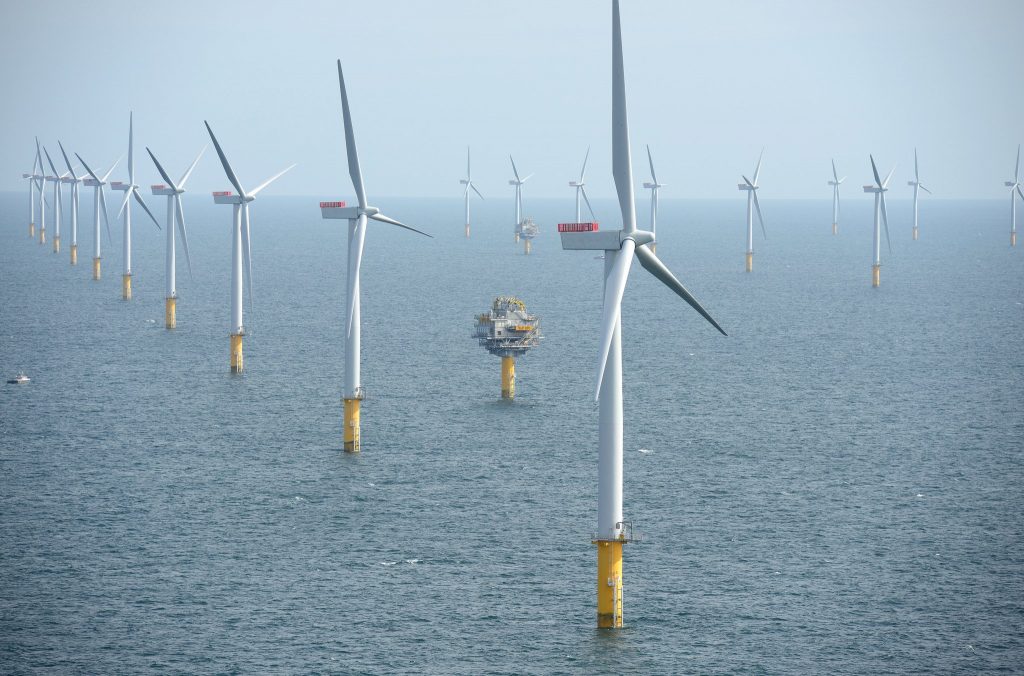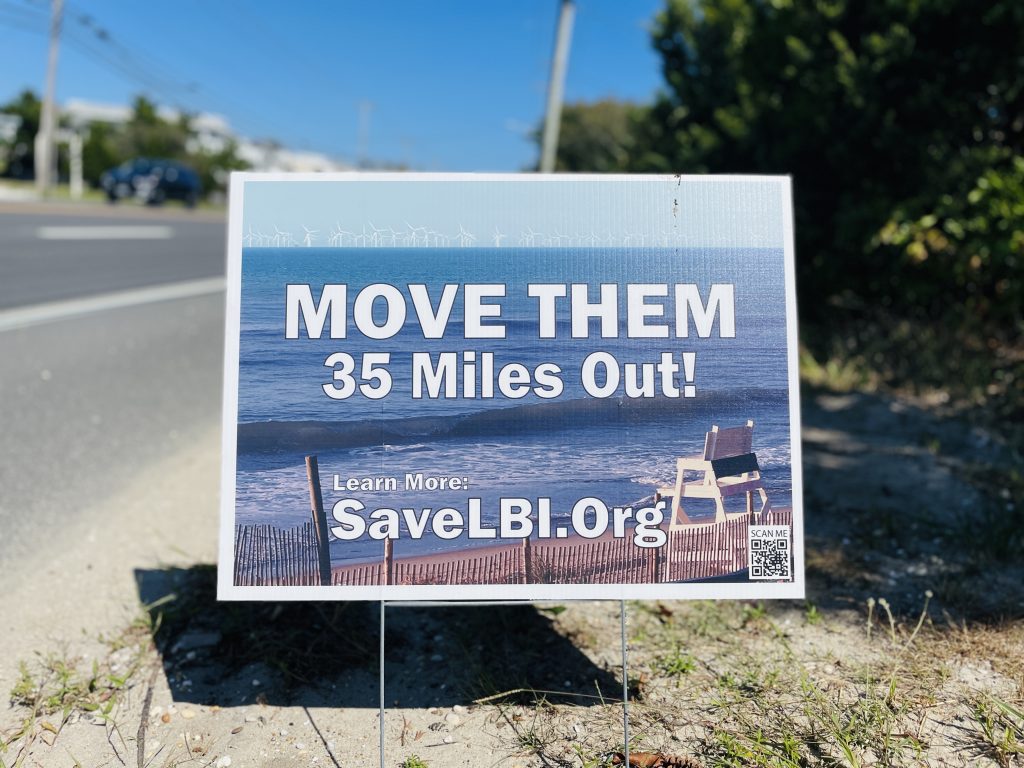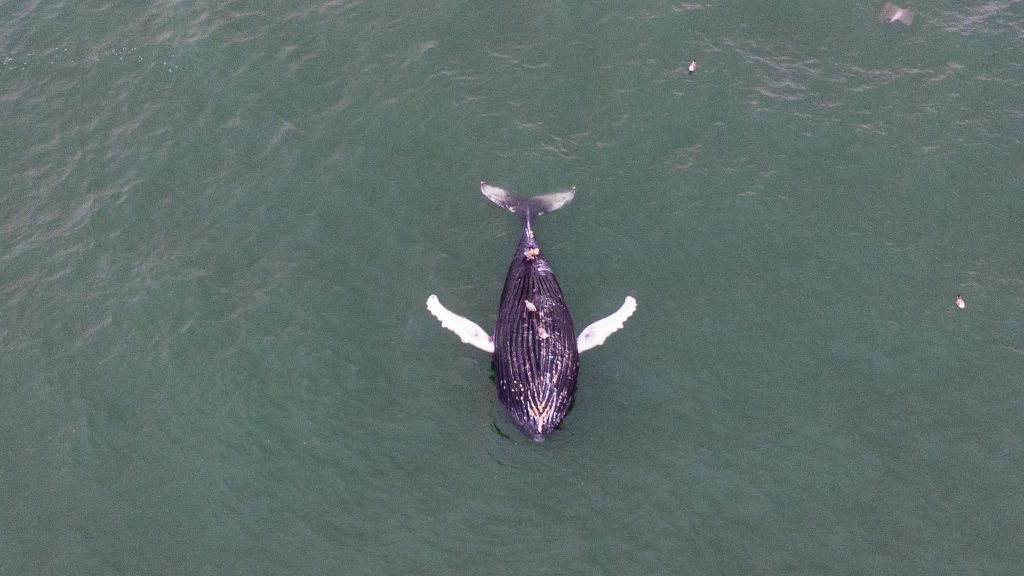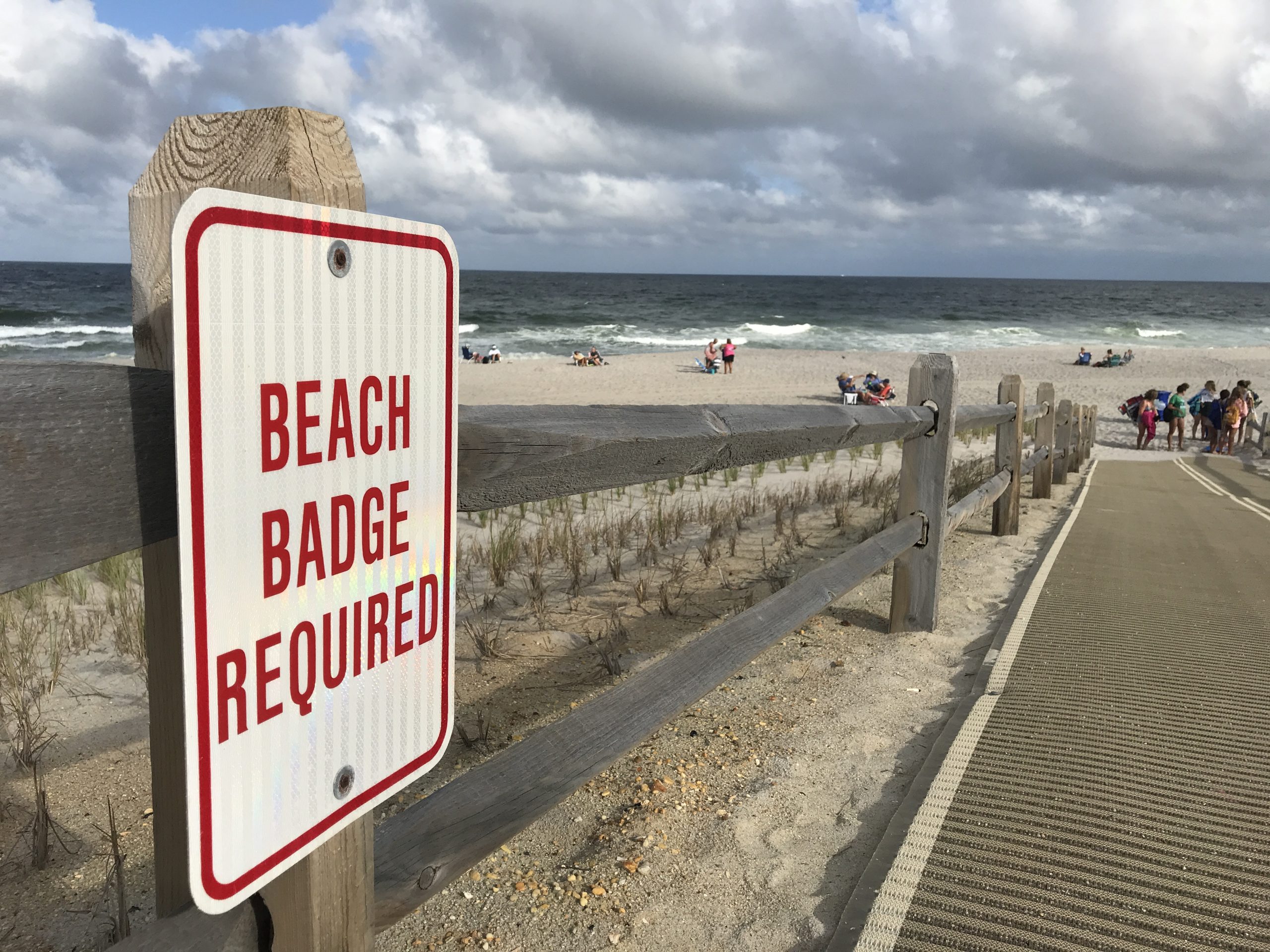The administration of President Donald Trump fulfilled a “day one” pledge to halt the construction of offshore wind turbines in the Atlantic Ocean off the New Jersey coast, a move which angered some environmentalists focused on climate change, but drew praise from others concerned about ocean industrialization – as well as local officials.
Trump signed an executive order hours after his inauguration Monday pausing new offshore wind approvals and requiring a comprehensive review of approved projects, such as those off New Jersey. An offshore wind projects was approved within sight of Long Beach Island, and another leasing area is located off northern Ocean County, though it is likely too far offshore to be visible from beaches. The state has been seeking additional areas for future development, however.
The order states: “With respect to such existing leases, the Secretary of the Interior, in consultation with the Attorney General as needed, shall conduct a comprehensive review of the ecological, economic, and environmental necessity of terminating or amending any existing wind energy leases, identifying any legal bases for such removal, and submit a report with recommendations to the President, through the Assistant to the President for Economic Policy.”
The pause in offshore leasing and development was driven by potential “negative impacts on navigational safety interests, transportation interests, national security interests, commercial interests, and marine mammals,” the order stated.
“For years, we have been pointing out the lack of serious scrutiny, proper vetting, and legal deficiency of these projects, but the Biden-Harris Administration has ignored our concerns—unilaterally dismissing specific questions on the dangers windfarms present to national security radar systems, marine mammals, and the livelihoods of our coastal communities,” U.S. Rep. Chris Smith (R-4) said in a statement. ” I have fought against the previous administration and am delighted that President Trump has heard the concerns and widespread public outcry.”
While the bulk of the opposition to wind turbines being constructed off New Jersey had to do with potential detriments to marine mammals – an unusually high number of which have washed up on local beaches in recent years – a mishap in New England last summer which resulted in shards of metal and industrial materials washing up on beaches sparked additional concern among residents. A more complicated facet of opposition to offshore wind development centered on commercial fishermen potentially being unable to fish in some offshore locations, especially in the case of the state’s prized scallop fishery. Officials had been considered a plan to set aside millions of dollars to compensate fishermen for the business they would lose. Finally, concerns recently came to light over interruptions in flight-tracking radar coverage for military aircraft returning from overseas.
The executive order drew outrage from the New Jersey chapter of the Sierra Club, which has advocated for offshore energy development.
“Yesterday’s executive order by President Trump to halt offshore wind development is a devastating, direct blow to New Jersey families and workers who stand to benefit from the thousands of high-paying jobs associated with the industry,” the organization said in a statement. “The offshore wind projects and associated ports across the state are an economic boon and provide a breath of clean, fresh air to residents. Furthermore, building out offshore wind would lower energy bills and utility costs for communities across the entire state, including the folks at the shore.”
Local officials have countered that energy bills have skyrocketed this year in response to state quotas on the use of renewable energy versus natural gas and other sources.
Sierra Club Director Anjuli Ramos-Busot said New Jersey residents are “on the front lines of the next climate disaster.”
Most local municipalities have advocated against the construction of offshore wind facilities, including Lavallette, Seaside Heights and Seaside Park, all of which passed resolutions objecting to development. Seaside Park Mayor John Peterson on Tuesday praised the decision, specifically pointing out its effects on the fishing community and the potential hazards that could come to local beaches if the turbines were to experience degradation.
“When we approve something here at our planning board, the person has to post a bond, have insurance, and meet benchmarks,” Peterson said. “All along, I’ve raised the concern that [offshore wind developers] haven’t had to do that, and if something goes wrong, you may be dealing with a foreign company. That’s what happened in Massachusetts.”
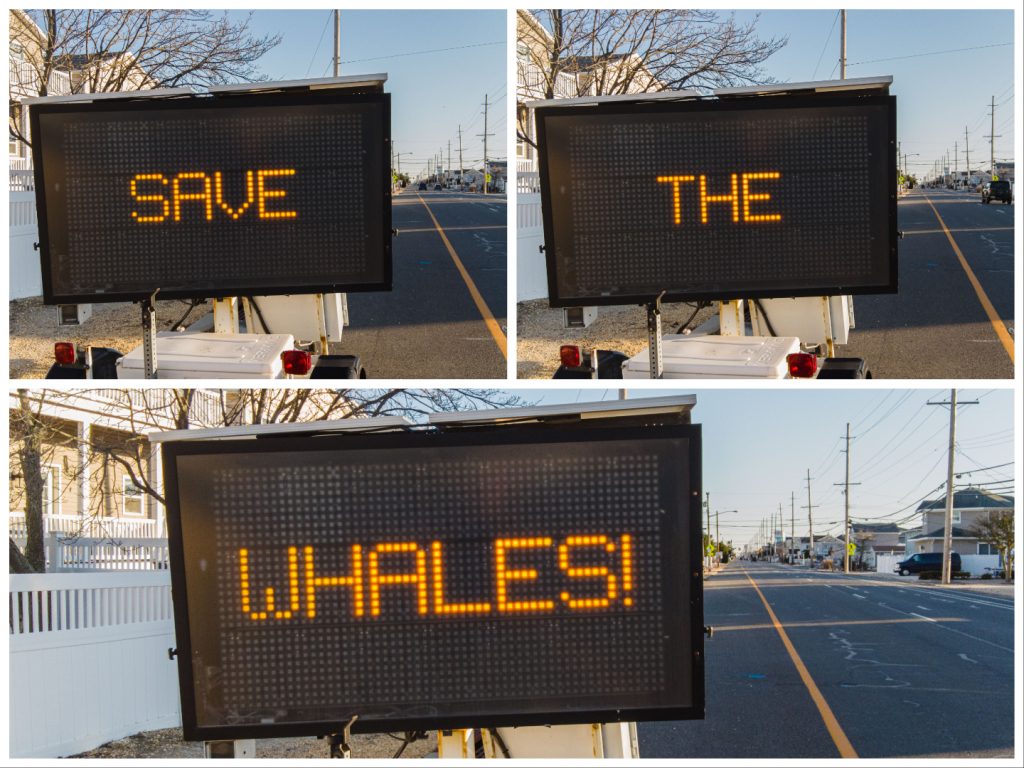
An electronic message board in Lavallette displays ‘Save The Whales’ along Route 35 South. (Photo: Daniel Nee)
Ocean County’s legislative representatives also praised Trump’s executive action, which was designed in part by U.S. Rep. Jeff Van Drew (R-1).
“The Green New Deal can’t deliver and can only survive with government subsidies and mandates. The only people who want it are the same people who put fish over people,” Assemblyman Greg McGuckin (R-Ocean) said.
The executive order is expected to draw litigation, however precedents set by former President Joe Biden’s cancellation of natural gas and oil pipeline leases may, ironically, bolster the survival of the measure.

Advertisement

Police, Fire & Courts
Police Investigating Possible Shots Fired in Seaside Heights

Police, Fire & Courts
Cops: Juvenile Arrested After 118mph Joy Ride in Seaside Heights, Toms River Kills 2

Seaside Heights & Seaside Park
Seaside Heights Mourns Passing of Boardwalk Legend, Still Working Into His 90s

